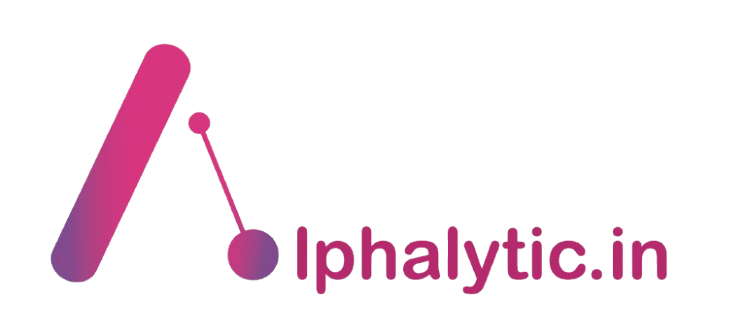ERP for Agribusiness: Farm-to-Fork Traceability
Managing Supply Chains with Environmental and Regulatory Focus
The agribusiness sector is witnessing transformative changes driven by increasing demands for transparency, sustainability, and regulatory compliance throughout the supply chain. From the moment crops are planted or livestock raised, to the final delivery of products to consumers’ tables, stakeholders want full visibility into the origins, handling, and environmental impact of agricultural goods. This “farm-to-fork” traceability is essential for food safety, quality assurance, and meeting strict regulatory requirements.
Enterprise Resource Planning (ERP) systems tailored for agribusiness are playing a crucial role in addressing these challenges. By integrating production, supply chain, environmental data, and compliance workflows, ERP systems enable agribusinesses to track products end-to-end, optimize operations, and uphold sustainability commitments.
1. Introduction to ERP in Agribusiness and Farm-to-Fork Traceability
a. What is ERP for Agribusiness?
ERP for agribusiness is a specialized software platform that consolidates core business functions—such as production planning, inventory management, procurement, quality control, finance, and regulatory reporting—into a unified system. These ERPs are designed to handle the unique complexities of agriculture, including seasonal variability, biological processes, perishability, and compliance with agricultural regulations.
b. The Importance of Farm-to-Fork Traceability
Farm-to-fork traceability means capturing detailed, verifiable information about the journey of agricultural products from their origin on the farm, through processing, packaging, transportation, and finally to the consumer. This level of traceability:
- Ensures food safety by enabling quick identification and isolation of contaminated or defective batches.
- Enhances consumer trust by providing transparency into sourcing and production practices.
- Supports regulatory compliance with local, national, and international standards.
- Promotes environmental sustainability by tracking resource use and waste along the supply chain.
2. Key ERP Capabilities Supporting Farm-to-Fork Traceability
a. Supply Chain Transparency
ERP systems collect and manage data across all supply chain stages:
- Field Operations: Recording planting dates, crop treatments (fertilizers, pesticides), irrigation, and harvesting details.
- Inventory Tracking: Monitoring stock levels, lot numbers, and batch attributes in storage and processing facilities.
- Logistics Management: Tracking shipments, storage conditions (temperature, humidity), and delivery routes.
- Supplier and Vendor Management: Maintaining certifications, audit records, and quality compliance of third-party suppliers.
This real-time visibility enables rapid tracebacks if food safety issues arise, minimizing risk and liability.
b. Environmental Monitoring and Sustainability
Agribusiness ERP platforms increasingly incorporate modules to measure environmental impact:
- Resource Usage Tracking: Monitoring water consumption, energy use, fertilizer, and pesticide application.
- Carbon Footprint Reporting: Calculating greenhouse gas emissions across production and transportation.
- Waste Management: Tracking waste generation and disposal or recycling efforts.
- Sustainability Certifications: Managing compliance with organic, fair-trade, or other eco-label requirements.
This information empowers companies to optimize resource efficiency and demonstrate sustainable practices to regulators and consumers.
c. Regulatory Compliance Management
Agribusinesses must navigate a complex landscape of food safety laws, traceability mandates, and quality standards, such as:
- FDA’s Food Safety Modernization Act (FSMA)
- European Union’s General Food Law
- Global GMP, HACCP, and ISO standards
ERP systems help automate compliance workflows by:
- Maintaining audit trails and inspection records
- Automating reporting and documentation
- Alerting managers to upcoming certification renewals or regulatory deadlines
- Ensuring adherence to labeling and packaging regulations
3. Benefits of ERP-Enabled Farm-to-Fork Traceability
a. Enhanced Food Safety and Quality Control
Immediate access to detailed product histories enables fast recall management and minimizes the impact of food safety incidents.
b. Improved Operational Efficiency
Streamlined workflows reduce paperwork and manual tracking errors, enabling more accurate forecasting, inventory management, and resource allocation.
c. Increased Consumer Trust and Market Access
Transparent supply chains enable agribusinesses to meet consumer demands for ethical sourcing, potentially commanding premium prices and entering new markets.
d. Environmental Stewardship
By quantifying environmental metrics, companies can identify inefficiencies, reduce waste, and align operations with sustainability goals.
4. Real-World Use Cases and Examples
- Dairy Farms using ERP systems to monitor animal health, feed inputs, milk production, and cold chain logistics for high-quality dairy products.
- Fruit and Vegetable Growers tracking pesticide applications and harvest batches to comply with food safety certifications.
- Seafood Processors integrating ERP with IoT sensors to monitor cold storage conditions and ensure freshness throughout the supply chain.
- Organic Farms leveraging ERP to document compliance with organic standards and manage certifications.
5. Challenges and Considerations
- Data Integration: Combining data from diverse sources, including IoT sensors, manual inputs, and third-party suppliers, can be complex.
- Cost of Implementation: Tailored ERP systems for agribusiness can require significant investment in software and training.
- User Adoption: Success depends on buy-in from field workers, supply chain partners, and management.
- Regulatory Variability: Different regions have varying requirements that ERP systems must adapt to dynamically.
6. Conclusion
Farm-to-fork traceability is essential in modern agribusiness, combining food safety, regulatory compliance, environmental responsibility, and consumer transparency. ERP systems uniquely position agribusinesses to meet these demands by providing end-to-end visibility, automating workflows, and integrating sustainability and compliance into everyday operations.
As technology advances, future ERP solutions will further integrate IoT, blockchain, and AI-driven analytics, empowering agribusinesses to build more resilient, transparent, and sustainable supply chains—ultimately ensuring safe, high-quality food reaches consumers while protecting the environment.
